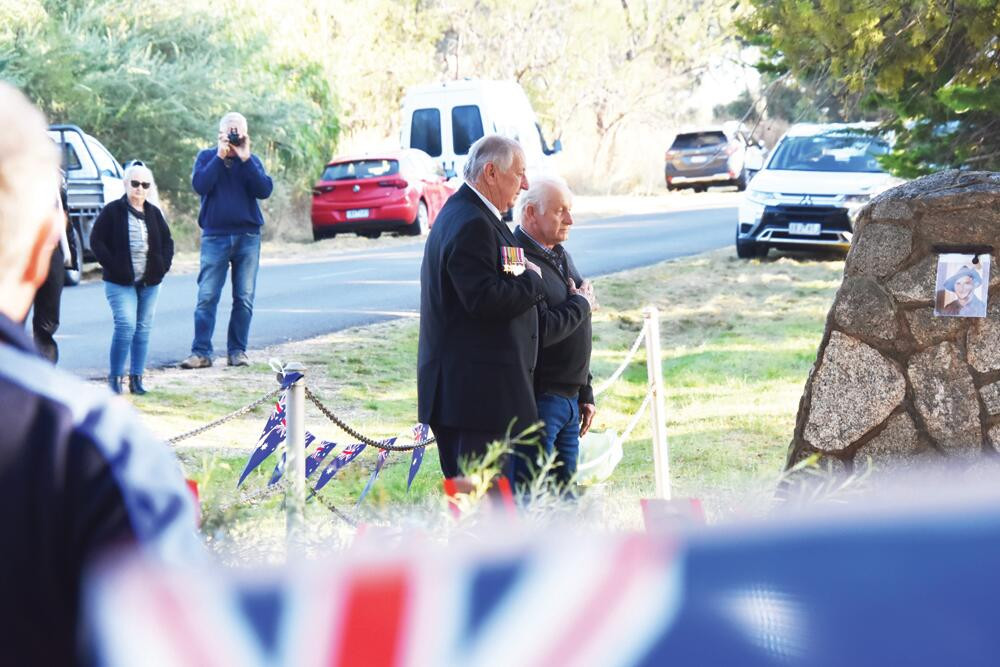Sport
28 April, 2023
First service since 1978
SEVEN soldiers from Rheola have been remembered at the town’s first ANZAC commemoration since 1978. Descendants of World War One casualties William Soulsby, Michael O’Shannessy and Robert Catto joined with families of Paul Grieves, Harold Leach...

SEVEN soldiers from Rheola have been remembered at the town’s first ANZAC commemoration since 1978.
Descendants of World War One casualties William Soulsby, Michael O’Shannessy and Robert Catto joined with families of Paul Grieves, Harold Leach, Albert Vorath and Thomas Leach killed in World War Two to lay wreaths.
The wreaths were placed at the base of the memorial that stands opposite the site of Rheola’s school that closed in 1978, the last time residents had commemorated ANZAC Day.
Inglewood and Bridgewater sub-branch of the RSL organised Tuesday’s service at the suggestion of Glenn Catto who was guest speaker.
“Rheola Primary School’s war memorial was started back in the late 40s with guidance of Cr Stan Catto and the local community,” he told 100 people who had gathered at the roadside plantation and memorial.
“The memorial cairn was built by Bradleys of Inglewood with rocks being sourced from Leach’s paddock near Melville Caves.
“The pine tree behind the cairn was planted by Charlotte Poynton with all the others students of that year with supervision from the teacher Alan McDonald.
“As a student at Rheola in the late 60s and 70s I remember the ANZAC Day services conducted at the school with the ABC radio broadcast, marching over the road followed by the laying of wreaths for the fallen and raising the flag.”
Mr Catto said the service remembered locals “who represented this very proud small country town”.
“It’s hard to imagine what effect the loss of these local men had on the district and the resolve of the men who returned, who lost best mates, that they had gone to school with and worked with,” he said.
“Those who returned, in true Australian spirit and mateship, got on with life and helped build the Australia we know today,” Mr Catto said.